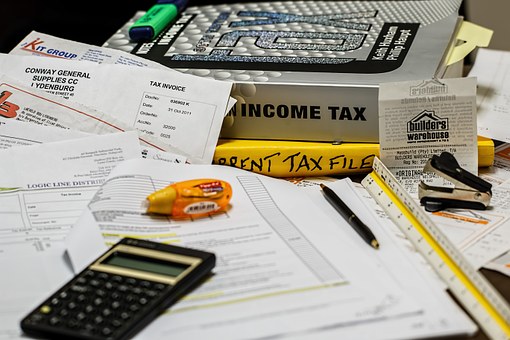Value Added Tax (commonly known as VAT in the industry), is regarded to be a sales tax. This particular tax is imposed on the expenditure of items like consumer goods, services and business transactions. Technically, VAT is paid by the consumer when they make a purchase; whatever paid in the form of VAT is ultimately collected by HMRC (the abbreviation for Her Majesty’s Revenue and Customs). UK introduced this concept to its economy in 1973, and within a very short period VAT registered businesses have become a prime source of revenue generation for the government.
Reclaiming VAT
VAT registered businesses can reclaim the costs they have paid pertaining to the trade of the respective business. As per UK’s financial act, a business cannot charge VAT from its customers unless they are not registered for VAT. Further, the businesses that are not registered for VAT are not eligible to reclaim VAT on their business expenses. Logically, VAT registered businesses play the role of effective tax collectors; they simply hold the responsibility to calculate the precise amount of VAT on each return. After the calculation process is done, if a particular business has paid excessive amount of VAT than the amount they collected from the customers, the particular business becomes eligible to reclaim it.
VAT is charged at one of the three different rates.
- Standard rated VAT (20%)
Most of the goods and services
- Reduced rated VAT (05%)
Products like domestic fuel, sanitary products, child car seats, installation of energy saving appliances etc.
- Zero rated VAT (0%)
Zero-Rate tax is implemented mostly on food items. However, meals that are served inside restaurants, cafes or takeaways are not included in this category. Apart from that, books, newspapers, clothing and shoes of the children, exported items, majority of the prescriptions dispensed to patients via registered pharmacists and most of the public transport services are included in this category.
When it comes to individual customers, VAT is a straightforward tax; it is paid at the point of purchase. However, when it comes to businesses, the process becomes pretty complex although the basic depends on the VAT these businesses pay on their purchases (which is known to be the input tax) and charge on their sales (output tax).
When should a company get VAT registered?
As per the financial act, every business that has an annual turnover exceeding £83,000 is mandatory to be VAT registered. However, it is not compulsory for a business to make an annual turnover of £83,000 if the particular business wishes to make a voluntary registration. In simplest terms, a company can get VAT registered even when its annual turnover is less than the minimum amount declared by HMRC.
Businesses consider voluntary registration for VAT in order to add reputation to their company profile. In fact, larger scale businesses prefer to do their business with partners that are VAT registered. Moreover, VAT registration can add credibility to a business and help it to appear as a stable establishment in the industry.
However, regardless of all the benefits of VAT registration, one you are registered you are compelled to submit VAT returns to HMRC once in every three months (quarterly basis) and inform the authorities the mount of VAT you have charged your clients. This report also should declare the amount of VAT charged from you when you make purchases from other VAT registered companies. You will be able to setup a system to invoice your sales and there is a considerable amount of paperwork to attend related to VAT. Additionally, you should be prepared to face periodic VAT audits carried out by HMRC.
VAT Invoices
Maintaining VAT related records (VAT invoices in particular) is mandatory for a smooth operation. The copies of the VAT invoices should be kept at least for six years. A VAT invoice should contain the following information.
- Issuance date of the invoice
- Identification number of the invoice
- Name and address of the business owner
- VAT registration number
- Name and address of the customer
- VAT registration number of the customer (if applicable)
- Quantity and description of the items sold
- Date supplied/paid
- Price without VAT
- Price with VAT (you should mention the VAT rate of course)
However, when it comes to a small-value invoices that contain a value less than £250 (including tax), the format becomes simplified. Such invoice may contain information like;
- VAT registration number
- Date supplied
- Quantity and description of the items sold
- Applicable rate of VAT
- Payable amount (with VAT)
Even when you run a VAT registered business, the invoices are not required when you issue exempted or zero rated items. Also, you don’t need to bother issuing VAT invoices when the items are issued to the public, unless the customer needs one.


